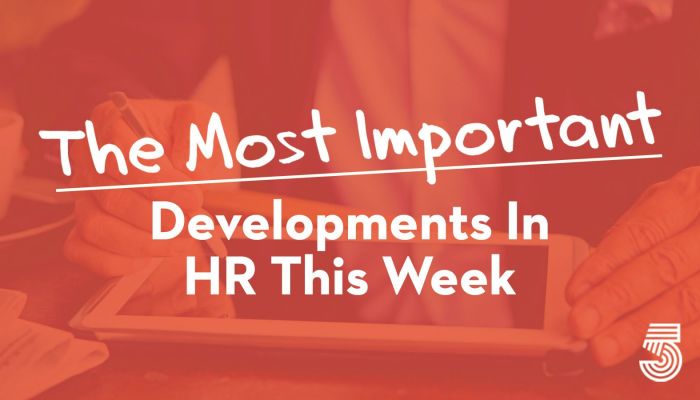The M.I.D., as we call it, is curated by our editorial team from more than 50 news sources. Like a lot of good ideas, this started as something I wanted for myself. If I can’t read everything, I at least want to stay abreast of the most important developments.
This week in HR, there was a lot of talk about meaningful benefits as tools in the hiring war, Dolly Parton’s company did just that by offering tuition to all its employees, AI made it harder for HR to compete in hiring, and forced arbitration for sexual harassment claims was nixed by Congress.

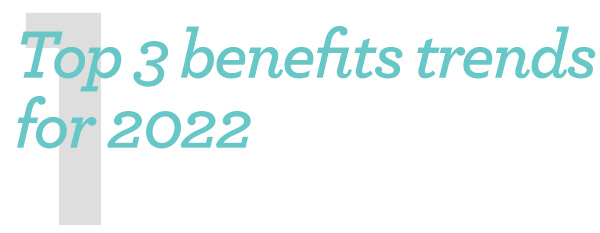
While most people were happy to say goodbye to 2021 and welcome in 2022, there’s still some apprehension. How can there not be after the past two years? But now that we’re over a month into 2022, how’s everything going? Is the business running smoothly? Are there things that need to be adjusted? If you’re feeling that something isn’t just right, maybe look at the top three benefits trends of 2022 and see if everything’s copasetic. #1: Flexible, hybrid work arrangements. For employers to attract and keep talent, it’s important in 2022 to be able to say you have a flexible work arrangement, whether it’s how many days you come in or what time you come in. #2: Improvement of emotional and mental health programs. While many employers do offer mental health resources, the problem is they’re underutilized. Accessibility to care is one of the biggest impediments. People just don’t know where to start. #3: Implement a holistic employee leave strategy. The pandemic has caused 75% of employers to change their unpaid leave policies. And this trend will continue through 2022, according to a Guardian study. HR Morning

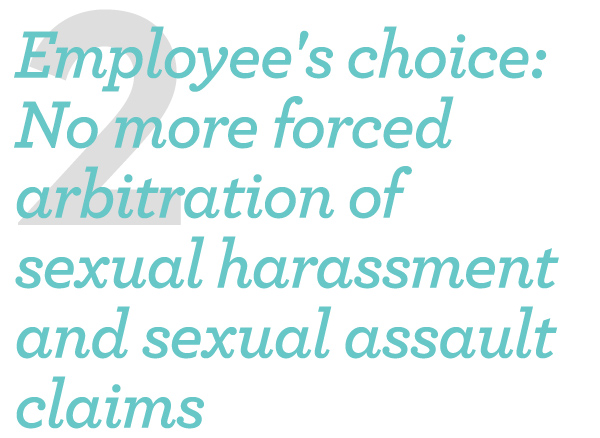
Employers can no longer mandate pre-dispute arbitration for claims of sexual assault or sexual harassment by employers. On Feb. 10, 2022, Congress passed the Ending Forced Arbitration of Sexual Assault and Sexual Harassment Act of 2021 (the “law”) ending any dispute as to whether the Federal Arbitration Act, 9 U.S.C. § 1 et seq. (FAA), preempted state laws seeking to prohibit mandatory pre-dispute arbitration of employee sexual harassment claims. The law amends the FAA and makes pre-dispute arbitration agreements between employers and employees that would otherwise obligate the parties to arbitrate claims of sexual assault or sexual harassment invalid and unenforceable. President Biden is expected to sign the Act into law. The law permits an employee and employer to agree to arbitrate sexual harassment and sexual assault disputes provided such agreement arises after the dispute occurs and the employee so agrees in writing. An employee may voluntarily choose to arbitrate their claim to ensure otherwise embarrassing or sensitive information remains private. The employee’s decision whether to do so will control. The National Law Review

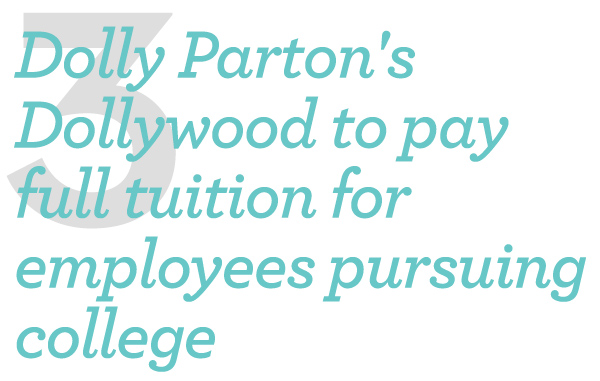
After funding the first wave of COVID-19 vaccine research, the country music star and beloved celebrity Dolly Parton is now spreading the gift of education. The country singer’s company recently announced that her theme parks will pay for employees to pursue a college degree. Starting Feb. 24, employees at Dollywood who pursue a college degree will have their tuition, associated fees, and books 100% covered by the Dollywood theme park. The offer also includes all 11,000 full-time, part-time, and seasonal employees that work at any of the 25 amusement parks and attractions under Herschend Enterprises, Dollywood’s parent company, including Dollywood. Under the Grow U program, the new education pilot initiative, employees can register for a higher learning program on their first day through 30 offered learning partners, with subjects ranging from marketing, technology, and other studies. The Guardian

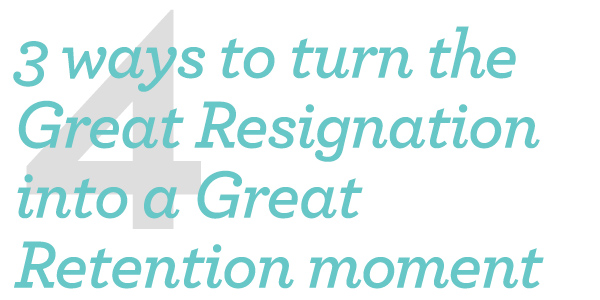
While the roar of the “war for talent” has been heard for decades and tightening talent markets have been experiencing it in bits and pieces, today’s labor market, regardless of business type or location, is now faced with more job openings than available workers. These market pressures are creating never-before-seen urgency around talent. For now, most businesses are reacting with the one tool that they can easily access: money. Unfortunately, the money bucket is not bottomless. It’s the definition of a finite resource, creating a reactionary cycle in the market that can only go on for so long. Organizations shouldn’t be faulted for reacting to the urgency of open positions with money. Businesses need employees. But at some point in time, the availability of money as a solution will reach a tipping point. Leaders will need to act for the future in addition to reacting in the present. Here are three things to help drive retention in your organization. Ensure pay equity. Increase workplace flexibility. Create a high-attention culture. HR Executive

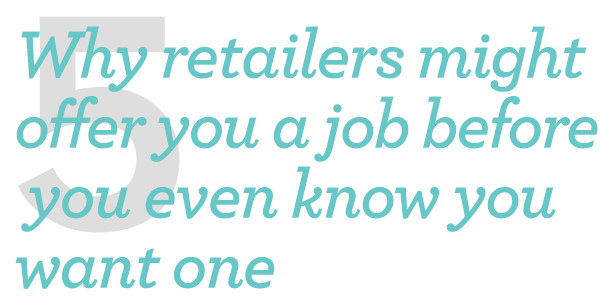
As the retail industry continues to lose workers, companies are turning the table on traditional hiring practices. Instead of waiting for candidates to come to them via traditional job postings, retailers are leaning on artificial intelligence software to search out people who would be good fits for jobs — before candidates even consider applying. Many of the artificial intelligence tools — such as chatbots, interviews over text, and instant video interviews — use natural language processing and machine learning to help speed up the early back-and-forth calls and messages that slow the recruiting process, when an applicant could spring to another retailer who responds more quickly. With an AI-enabled chatbot, the software uses natural language processing to analyze a candidate’s text and respond with information about open roles or specific benefits, for example. Fetcher, an outbound recruiting platform startup founded in 2015, searches the internet for potential candidates who could be good fits for certain jobs — but who have not yet applied. While the technology has traditionally been used to fill open positions for engineers or finance analysts, in the last year it has increasingly been used to fill hourly retail and hospitality jobs, said Andres Blank, Fetcher’s CEO. “Usually automation happens when we see a bottleneck,” Blank said. “Now the bottleneck is ‘I don’t have enough applicants.’” NBC News







